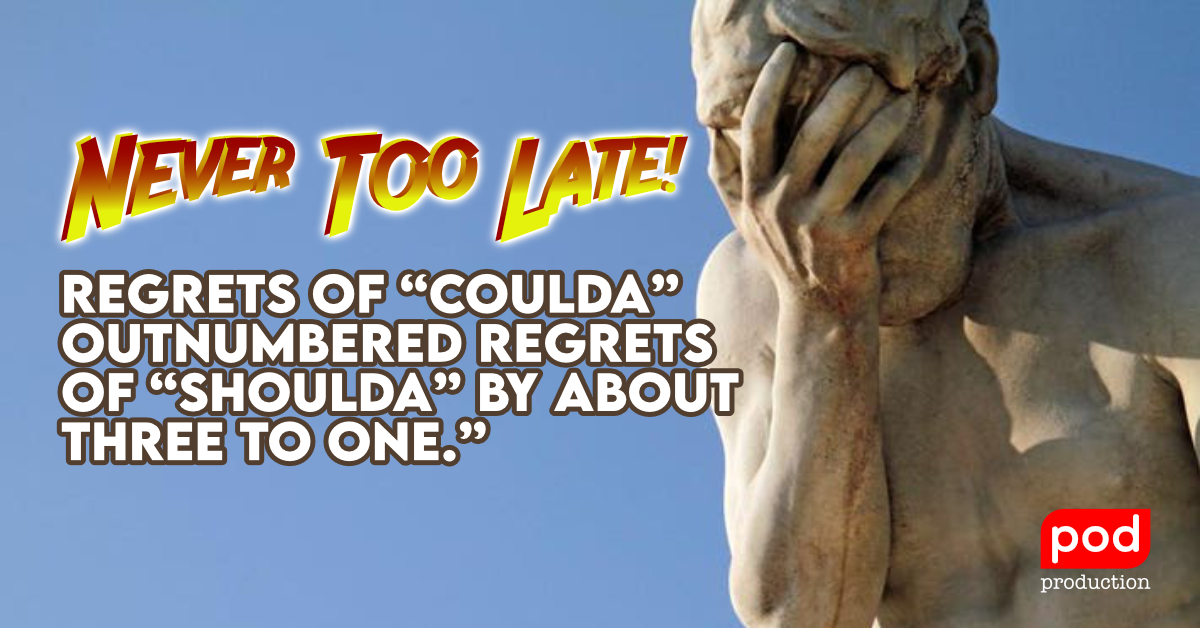Continuing excerpts from ‘The Power of Regret’. I found this snip bit of information very interesting.
Regrets of “coulda” outnumbered regrets of “shoulda” by about three to one.”
Shai Davida – Thomas Gilovich
“Each time you look in the mirror, you see one person. But if you squint a little harder, you might see three selves.
That is the idea animating a theory of motivation that Tory Higgins, a Columbia University social psychologist,”
“first proposed in 1987. Higgins argued that we all have an “actual self,” an “ideal self,” and an “ought self.”
Our actual self is the bundle of attributes that we currently possess. Our ideal self is the self we believe we could be—our hopes, wishes, and dreams. And our ought self is the self we believe we should be—our duties, commitments, and responsibilities.
What fuels our behavior and directs which goals we pursue, Higgins argued, are discrepancies between these three selves. For instance, if my ideal self is someone who’s healthy and physically fit but my actual self is lethargic and overweight, that gap might motivate me to start exercising. If my ought self believes in caring for elderly relatives but my actual self hasn’t visited Grandma in six months, I might leave the office early and to Grandmother’s house I will go. However, when we don’t make these efforts, when a discrepancy persists between who we are and who we could or should be, unpleasant feelings flood the gap.”
“In 2018, Shai Davidai, of the New School for Social Research, and the ubiquitous Thomas Gilovich enlisted Higgins’s theory to analyze regret. Expanding on Gilovich’s earlier research showing that, over time, people regret inactions more than actions, they conducted six studies that reached a single conclusion: people regret their failures to live up to their ideal selves more than their failures to live up to their ought selves. Regrets of “coulda” outnumbered regrets of “shoulda” by about three to one.”
Excerpt From
The Power of Regret
Daniel H. Pink
This material may be protected by copyright.


Leave a Reply
You must be logged in to post a comment.